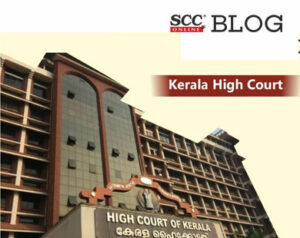Kerala High Court: While deciding the petition, the bench of Bechu Kurian Thomas, J., held that the prosecution against the petitioners is an abuse of the process of law as the size of MRP and packing date is in compliance with the Legal Metrology Rules and there is no mandate or stipulation that enables the Inspector to remove the commodity from the bottle, rendering the accused to prejudice.
In the case at hand, the respondent filed a complaint against the manufacturer and directors of the ‘FROOTI’ alleging that the declaration of MRP was not printed on the label and was not legible, and the font size of the numerals of MRP and packing date was not of the required size. The respondent alleged violation of Rules 4, 6, 7(2), 9(1)(b), 9(3) read with Rule 8(2) and 18 of the Legal Metrology (Packaged Commodities) Rules, 2011 (“the Rules, 2011”) and Sections 18 and 36(1) of the Legal Metrology Act, 2009 (“the Act, 2009”). The petitioners invoked the jurisdiction of this Court under section 482 of the Criminal Procedure Code, 1973, seeking to quash the complaint.
The Court observed that the declaration of MRP and the date of manufacture are online information. The pre-printed information includes details of the manufacturer, the net contents, the ingredients etc. It is printed using a printer.
The respondent contended that the retail sale price (which forms the online information) can be printed on the bottle, only if the product is a soft drink or ready-to-serve fruit beverage and the bottle is returnable by the consumer for being refilled.
The Court stated that as per Rule 8(1) of the Rules, 2011 every declaration should appear on the principal display panel. Further, Rule 2(h) of the Rules, 2011 defines the principal display panel as the total surface area of the package which means that information can be given at the total surface area of the package. Rule 8(2) of the Rules, 2011 stipulates that for soft drinks and ready-to serve fruit beverages or the like, the retail sale price can be indicated either on the crown cap or on the bottle or on both, if the bottle is one which can be refilled.
The Court further stated that Rule 8(2) of the Rules, 2011 can be regarded only as an addition to and not as a restriction or exception to Rule 8(1) of the Rules, 2011. In other words, Rule 8(2) of the Rules, 2011 is only an enabling provision which enables the manufacturer to have the option to specify those required details printed in the places mentioned in the sub-rule . In the instant case, the pre-printed information is given on the wrapper encircling the bottle, while the online information, though grouped together, is printed on the neck of the bottle. Thus, the Court held that there is no violation of rule 8(2) of the Rules 2011 as the retail price and the other online information grouped together are printed on the neck of the bottle.
The Court held that at the time the respondent purchased the product of the petitioners, the rules treated the entire bottle itself as a principal display panel and since the information, both online and pre-printed, could be affixed separately or together on the principal display panel, there is no legal basis for the allegation of infraction of Rule 8(2) of the Rules 2011.
Coming to the second violation alleging the font size of the numerals of MRP and packing date, the Court referred to Rule 7 of the Rules 2011 which specifies the minimum height of the numerals and concluded that according of the quantity of the product the minimum height of the numerals must be 4mm in normal cases and it must be 6mm when the numerals are blown, formed, molded embossed or perforated on the container.
The Court held that on a perusal of the complaint, it is evident that the product in question is not stated to be containing any blown, formed, molded embossed or perforated numerals on the container. Thus, the height of the numeral needs to be only 4mm as in the normal case and not 6mm as alleged in the complaint.
The Court further stated that the sample package produced before the court was only the plastic bottle, without the product or the commodity inside it. The legibility and clarity of the label or the online information printed on the bottle become clear only with the commodity inside the bottle. If the commodity is perishable, the provisions of section 451 of Criminal Procedure Code, 1973 is required to be followed.
The Court held that merely because the product or the commodity is perishable, it was not open for the Inspector to remove the commodity from the bottle without complying with the provisions of the Act or the Rules, as that will prejudice the accused during the prosecution. Thus, this reason also makes the proceedings liable to be quashed.
The Court held that the prosecution against the petitioners is an abuse of the process of law and quashed all proceedings against the petitioner.
[Parle Agro Pvt. Ltd. v. Senior Inspector, 2022 SCC OnLine Ker 7133, decided on 20-12-2022]
Advocates who appeared in this case :
Counsel for petitioners: Advocate Madhu Radhakrishnan, Advocate Nelson Joseph;
Counsel for respondent: Advocate Noushad K.A.

